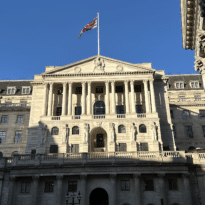After a challenging first six months of 20123, what might we expect of the second half of the year? David Hambidge, investment director Multi-Manager Funds at Premier Miton Investors, considers the market landscape.
It has certainly been an interesting and at times, challenging first six months of the year, with investors having to deal with further tightening of monetary policy by most of the world’s major central banks with inflation remaining uncomfortably high. The fastest rise in rates in decades has in turn put pressure on parts of the financial system, including the US and European (Swiss) banking sectors.
All in all, the current backdrop is hardly a recipe for increased risk appetite although there have been areas that have bucked the broader market trend such as big tech and artificial intelligence, with share prices in some companies linked to the latter (e.g. Invidia), recording extraordinary gains.
However, for most equity markets recently it has been tough going with Europe and the UK giving back some of the gains achieved earlier in the year and while Japanese equities have performed strongly of late, much of the gain for foreign investors has been wiped out by significant Yen weakness.
Meanwhile in the bond markets, performance has been mixed. One of the weaker areas has been UK gilts, where yields have risen at both the short and long end as a result of worrying inflation and wage growth data. However, credit has performed better with the shorter duration high yield sector outperforming investment grade bonds which typically carry more interest rate risk. Meanwhile Emerging Market debt has performed relatively well, helped by a weaker US dollar, albeit the sector has a way to go to recover its 2022 losses.
Turning to UK commercial property, capital values appear to have stabilised of late following a soggy start to the year. This may seem surprising given the rising interest rate backdrop, but there has been a substantial pick up in yields since last summer and this together with rental increases is providing support, for now at least.
H2 prospects
As for the prospects for the second half of the year, much will depend on inflation and interest rates. In the US, the Federal Reserve elected to leave rates on hold at their June meeting, although there is still a reasonable chance that there may be one or two more increases to come. Meanwhile in Europe, the ECB once again hiked rates by 0.25% and a further increase seems likely in July.
Here in the UK, the task facing the Bank of England’s Monetary Policy Committee (MPC) appears even more challenging as not only has the inflation data been worse than elsewhere, but wages are rising too fast as well. As a result, the MPC will almost certainly raise rates again, potentially several more times in the second half of the year. This will inevitably put pressure on the housing market and those home owners who will have to re-finance their mortgages at significantly higher rates over the next twelve months.
So far, developed market economies (including the UK) have been remarkably resilient in the face of much tighter monetary policy although how long this can continue is open to question. Changes in interest rates take a long time to feed through to the broader economy and as a result we suspect that we will see a slowdown in the second half.
As a result of this and together with further improvements in the inflation data, the second half of the year should see peak rates in the US, UK and Eurozone. However, for rates to fall, the economic data will have to be uncomfortably soft and this may prove problematic for equity markets and particularly those trading on a high price/earnings multiple such as the US. However, once the market gets comfortable that rates have peaked, the environment for bonds should be much improved.
As far as our multi-manager income portfolios are concerned, rising yields in bonds and other assets has resulted in strong income growth over the last twelve months and we expect this trend to continue. As far as a recovery in capital values are concerned, I suspect more patience will be required but for the time being investors are at least being paid a cash beating yield whilst waiting for a recovery in asset prices.































